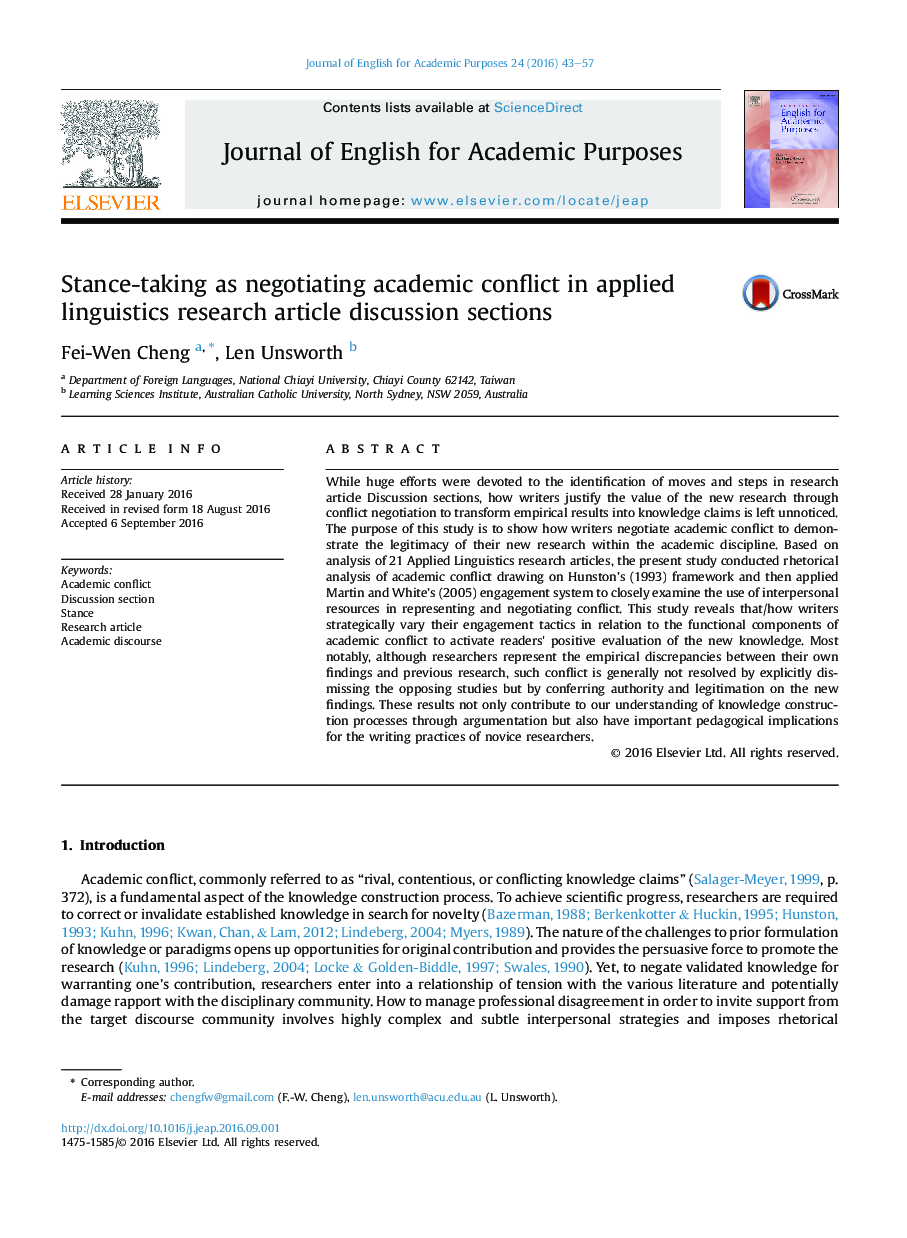| Article ID | Journal | Published Year | Pages | File Type |
|---|---|---|---|---|
| 6843138 | Journal of English for Academic Purposes | 2016 | 15 Pages |
Abstract
While huge efforts were devoted to the identification of moves and steps in research article Discussion sections, how writers justify the value of the new research through conflict negotiation to transform empirical results into knowledge claims is left unnoticed. The purpose of this study is to show how writers negotiate academic conflict to demonstrate the legitimacy of their new research within the academic discipline. Based on analysis of 21 Applied Linguistics research articles, the present study conducted rhetorical analysis of academic conflict drawing on Hunston's (1993) framework and then applied Martin and White's (2005) engagement system to closely examine the use of interpersonal resources in representing and negotiating conflict. This study reveals that/how writers strategically vary their engagement tactics in relation to the functional components of academic conflict to activate readers' positive evaluation of the new knowledge. Most notably, although researchers represent the empirical discrepancies between their own findings and previous research, such conflict is generally not resolved by explicitly dismissing the opposing studies but by conferring authority and legitimation on the new findings. These results not only contribute to our understanding of knowledge construction processes through argumentation but also have important pedagogical implications for the writing practices of novice researchers.
Related Topics
Social Sciences and Humanities
Arts and Humanities
Language and Linguistics
Authors
Fei-Wen Cheng, Len Unsworth,
